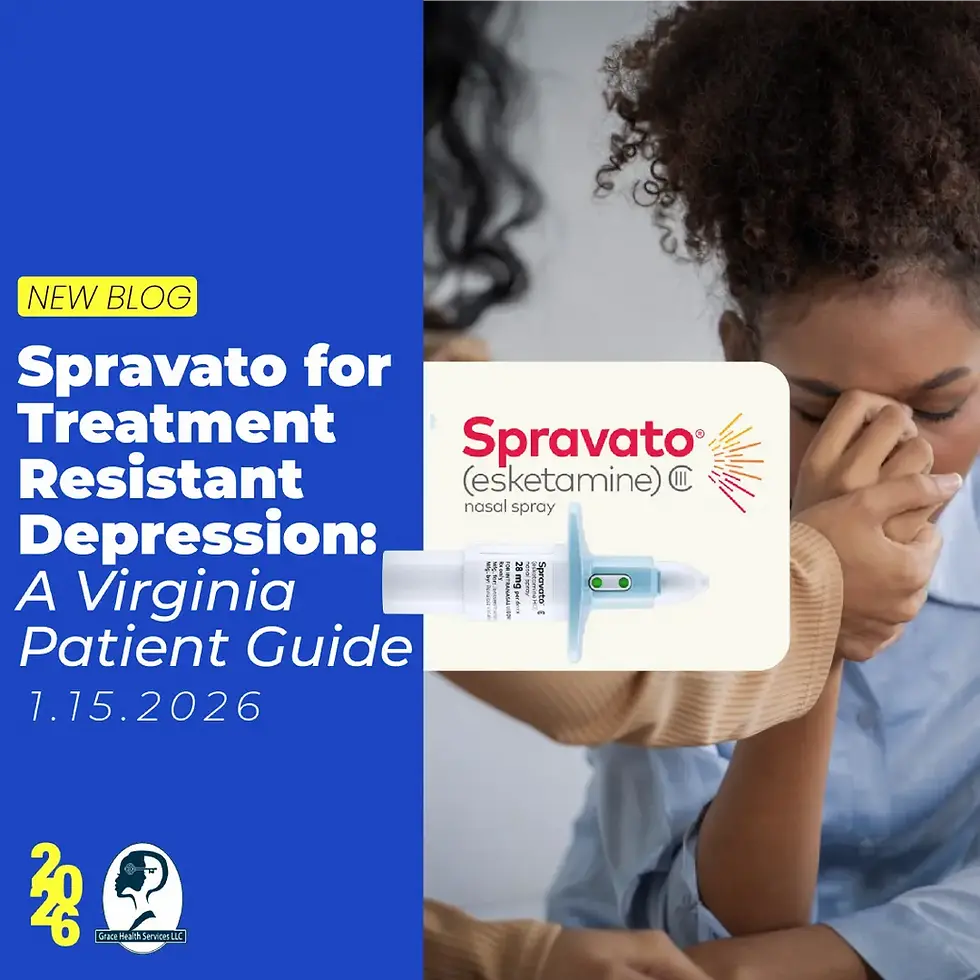Can You Work with Bipolar Disorder? Career Tips and Accommodations
- Jun 27, 2025
- 2 min read
Empowering Productivity and Stability at Grace Health Services – Virginia
Bipolar disorder doesn’t have to mean stepping away from your career. Many people with this condition thrive at work—with the right strategies and support.
At Grace Health Services LLC in Virginia, we help individuals navigate employment challenges, find the right accommodations, and balance mental health with professional success.

On this page:
1. Understanding How Bipolar Disorder Affects Work
Bipolar disorder can impact energy, concentration, social interaction, and decision-making. Both manic and depressive episodes may disrupt routines and responsibilities—but that doesn’t mean you can’t succeed at work.
Work-related challenges may include:
💼 Sudden shifts in motivation or productivity
🧠 Difficulty focusing or remembering details
🗣 Struggles with communication or emotional regulation
📅 Inconsistent attendance during mood episodes
Recognizing these issues is the first step to finding sustainable solutions
2. Know Your Rights and Available Accommodations
The Americans with Disabilities Act (ADA) protects employees with mental health conditions, including bipolar disorder. You’re entitled to reasonable accommodations that help you perform your job.
Common workplace accommodations:
🕰️ Flexible work hours or remote work options
🛋️ Quiet spaces or reduced stimulation environments
📋 Written instructions and regular check-ins with supervisors
🧘 Breaks for self-regulation, therapy, or medication
🔄 Modified workload during recovery from episodes
Accommodations should be personalized and may evolve with your needs
3. Managing Triggers and Building Routine
Consistency is key in managing bipolar disorder. That applies at home and at work. At Grace Health Services, we coach clients in building wellness plans that support emotional stability—even during stressful work periods.
Daily habits that support stability:
📓 Keep a detailed schedule with reminders
🛌 Prioritize sleep and limit overtime
🍎 Eat balanced meals and take prescribed medications
📞 Use support systems: therapists, HR, or trusted colleagues
🌿 Practice stress-reduction tools like mindfulness or grounding
The goal is to prevent burnout—and catch early signs of mood shifts
4. Communicating with Employers (If You Choose To)
Disclosing your diagnosis is a personal decision. If you choose to do so, it can lead to greater support—but it’s best done thoughtfully.
Disclosure tips:
💬 Focus on your strengths and how you manage challenges
📄 Be clear about the accommodations that help you thrive
👂 Choose a manager or HR contact you trust
🔐 Remember: your medical history is protected by law
At Grace, we offer coaching on workplace communication and mental health advocacy.
Conclusion
You can work, lead, and grow in your career—even with bipolar disorder. With proper treatment, smart strategies, and a supportive team, professional success is entirely possible.
👉 Ready to build a work-life plan that supports your mental health Contact us today for personalized, empowering care.




